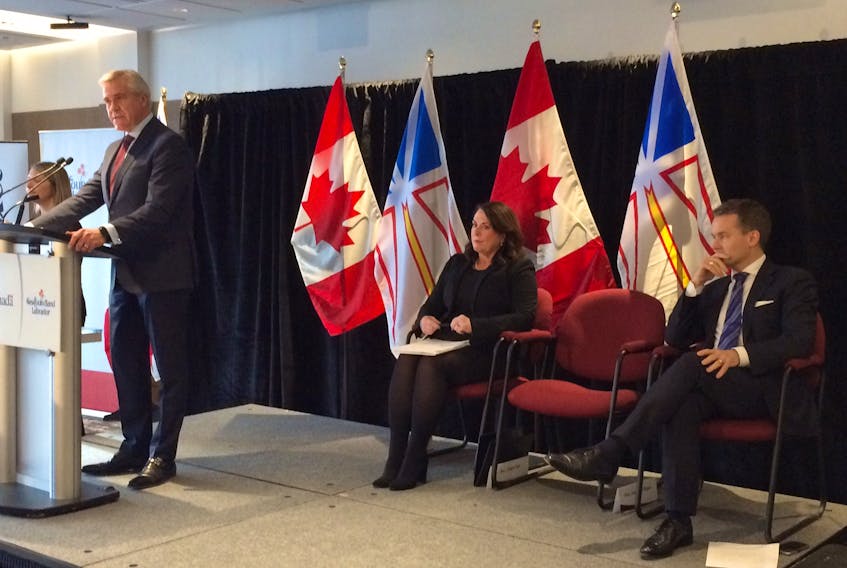There’s always a simple explanation.
In a lot of ways, Monday’s announcement about rate mitigation and the Muskrat Falls project was mostly an agreement between the federal and provincial governments to change the project’s financing so that we’ll pay for it based on the actual cost of the power, rather than artificially lowering prices through a supply pricing approach.
What does that mean?
Well, the simplest way to explain it is that the old method was a buy-now-pay-later method. Electricity prices would start artificially lower and climb regularly into the future, while the cost of service method the government will now use is more like a traditional mortgage or loan: more expensive to start, but cheaper as we pay off the debt and interest we’ve incurred. It’s also an easier model for the federal government to help with, because any assistance they do offer could shrink with every passing year.
Right now, there isn’t any federal money on offer to bridge the huge fiscal hole Muskrat Falls has become for electrical ratepayers, and no real commitment beyond the feds releasing the province from some expensive parts of the original agreement.
Why did the former government start with the buy-now-pay-later model? Well, two reasons; one optical, the other, practical. For optical reasons, the provincial government wanted the Muskrat Falls option to look as good as possible against other options for solving the province’s power problems. If the government had opted for cost of service arrangement, initial power rates would have been higher, and Muskrat Falls would have been less attractive.
The other problem was more practical: at the outset, even the most optimistic numbers suggested we’d start off using just 40 per cent of the power from Muskrat inside the province — yet, in order to get financing, the government committed that ratepayers would pay 100 per cent of the facility’s costs.
That would put a heavy burden on ratepayers. The government felt that, by pushing back interest payments into the future, ratepayers wouldn’t have to pay them until a higher amount of the Muskrat Falls power was being used in-province, and in the process they’d spread the interest costs across more kilowatt hours.
While that’s understandable, cost of service is a more honest recognition of what the project means to ratepayers.
What does it change?
Not a heck of a lot, right off the bat. Right now, there isn’t any federal money on offer to bridge the huge fiscal hole Muskrat Falls has become for electrical ratepayers, and no real commitment beyond the feds releasing the province from some expensive parts of the original agreement.
Much of Monday’s news conference could be summed up with the sentence “We’ve started, but we’re still working on it.”
One sobering thought from a person who was not at the announcement as we wait to see what, if any, federal aid there might be?
Federal Finance Minister Bill Morneau pointed out in a letter to Premier Ball that was released Monday, “As this proceeds, it is important to remember these are provincial projects, in provincial jurisdiction, and the province bears responsibility to ensure they are delivered economically.”
Indeed.









